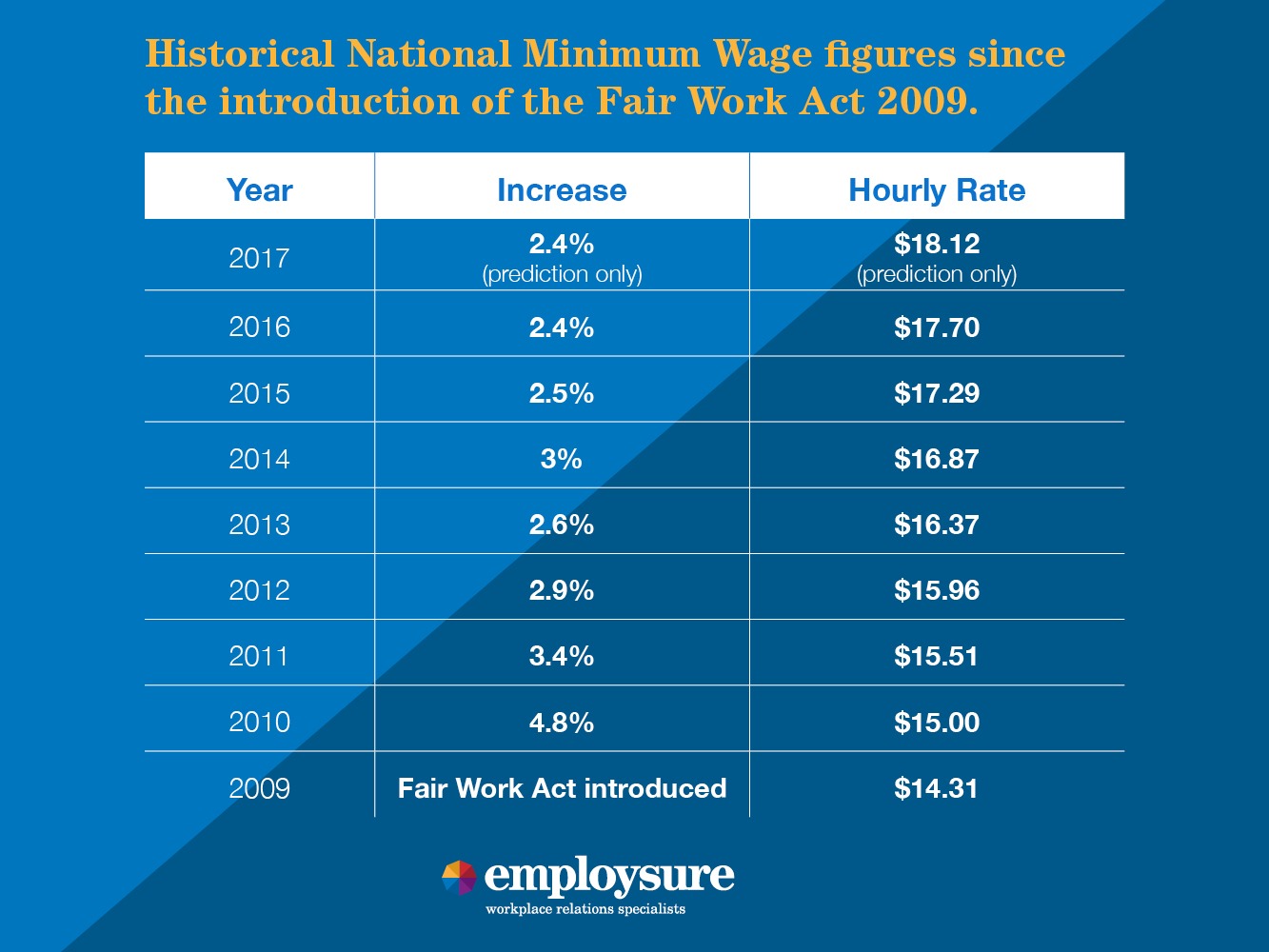
The National Minimum Wage in Australia is expected to increase by no more than 2.4% this July, according to SME workplace specialists Employsure, adding more burden for small business.
SMEs are eagerly awaiting for the Fair Work Commission to hand down its yearly decision on what the new National Minimum Wage will be. The decision could land any day now however, SMEs are rarely equipped for interpreting and applying the changes for their business.
Currently, the National Minimum Wage of $672.70 per week, is calculated on the basis of a 38 hour week, or $17.70 per hour. Employsure are predicting that this year, the National Minimum Wage will increase by no more than 2.4% which may mean the hourly Minimum Wage will just break past the $18.00 mark.
Employsure’s Managing Director Ed Mallett says: “we predict this based on past behaviour of the Commission and the influences of the employment rate, the GDP trends, and inflation rate. Australia is an overly developed economy and all these factors will come into play.” Pointing to the Commission’s decision to cut penalty rates in the retail and hospitality sector, Mallett points out that business groups argued that cutting their wage bills would lead to the creation of more jobs and greater business productivity.
“Our small business clients tell us that there’s a lot of pressure. Any wage increase will impact the bottom line of SMEs and will not be welcomed. SMEs create jobs, wealth and revenue – without employment opportunities in business, Australians’ living standards would drop.”
Across June and July Employsure will receive over 30,000 calls and provide more than 36,000 advice pieces to Australian SMEs: “Award rates are mind bogglingly difficult for small businesses to work out. We take the time to understand who your employees are, how to categorise them based on their employment type, then based on the work they do and working hours – we can direct clients on what to pay – not too little and just as importantly, not too much.”
It’s seriously important that employers check which Award their employees are covered by. The National Minimum wage is applicable for employees not covered by an Award. Most employees are covered by an Award and therefore each Award rate is different. Historically, Award rates see the same percentage increase as the National Minimum Wage.
What happens next?
Each National Minimum Wage order made in an annual wage review comes into operation on 1 July in the next financial year, and continues in operation until the next National Minimum Wage order comes into operation. At the end of the review the Commission will issue its decision. This will be followed by the publication of determinations changing the Minimum Wage rates in Modern Awards, and a National Minimum Wage order for employees who are not covered by an agreement or Award.
It usually takes the Commission two to three weeks to update the pay rates in each Award. Employers need to listen out for announcements and visit the Fair Work Commission and Fair Work Ombudsman websites for updates: “As they make these changes, we’ll immediately update our 13,000 small business clients with the new rates relevant for their employees.”
For tailored advice, you can speak with an Employsure Workplace Adviser on 1300 832 795 or visit www.employsure.com.au



What's Your Opinion?